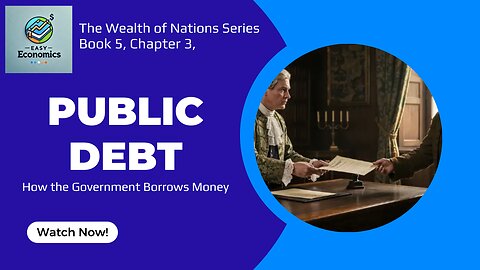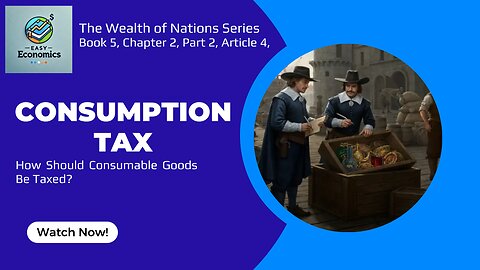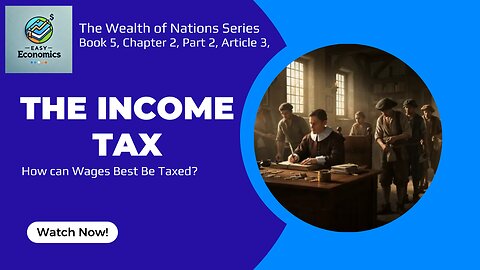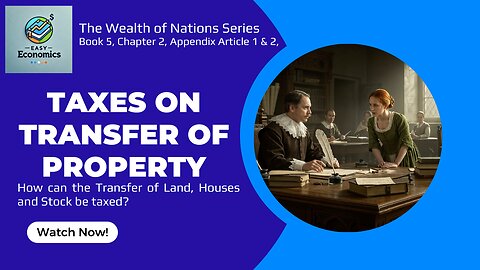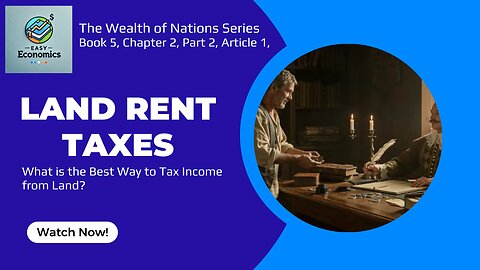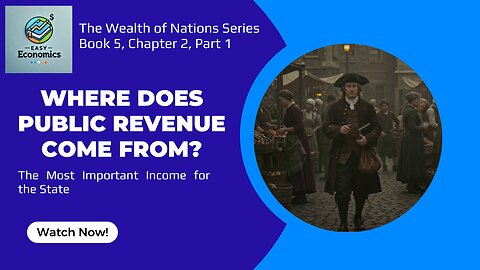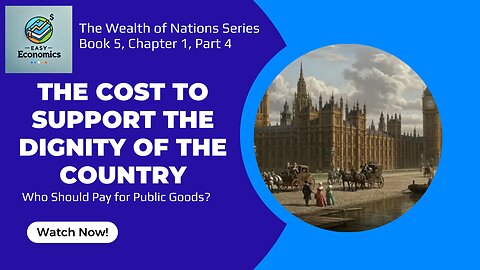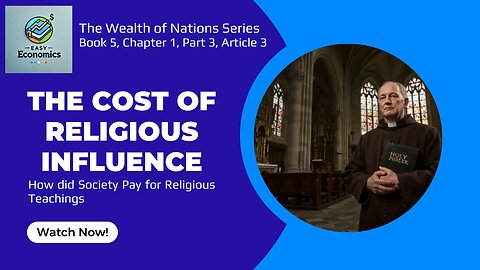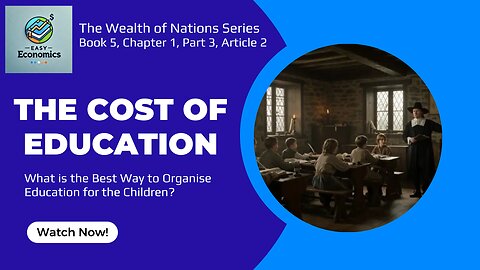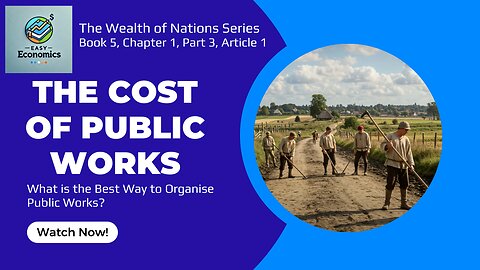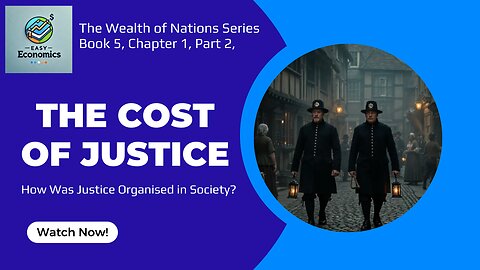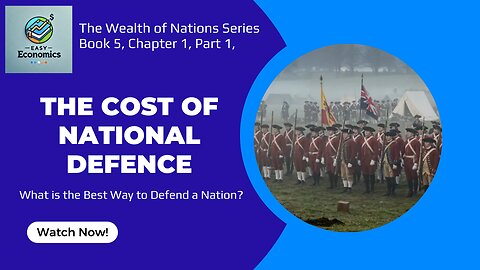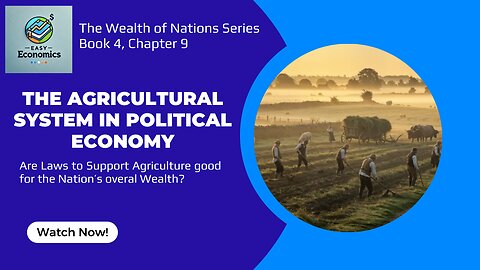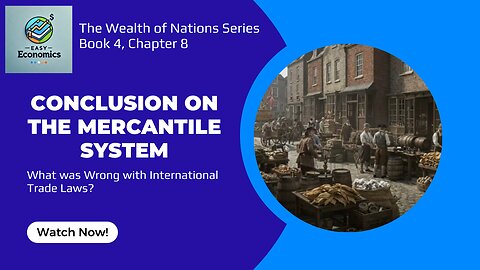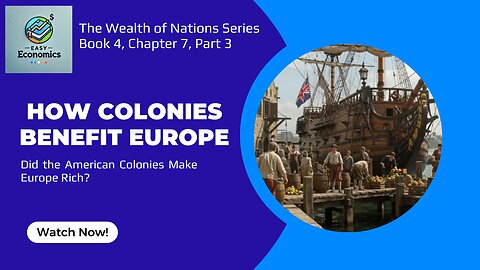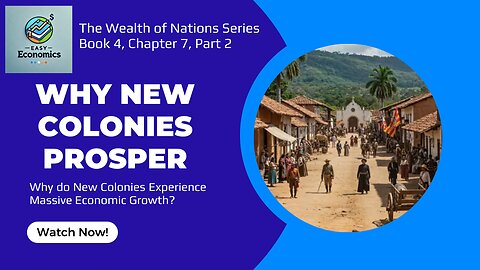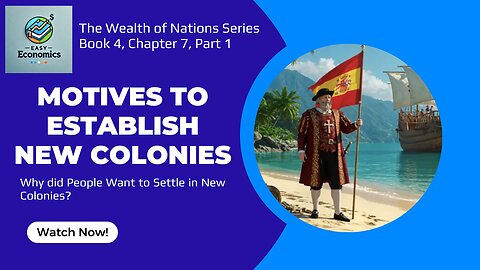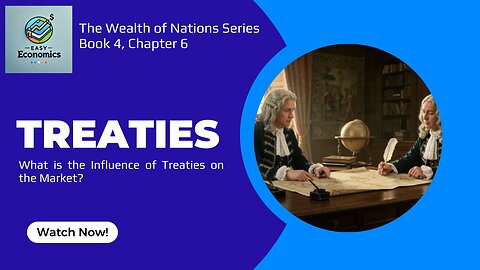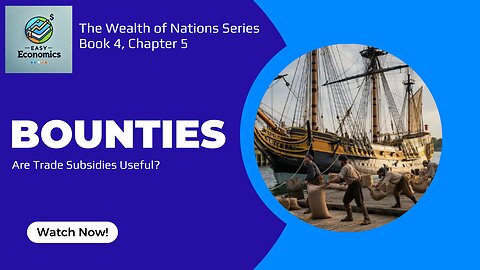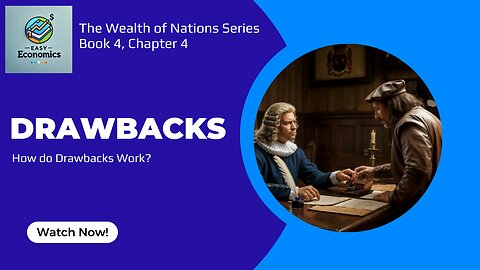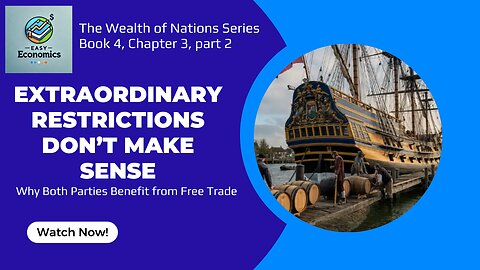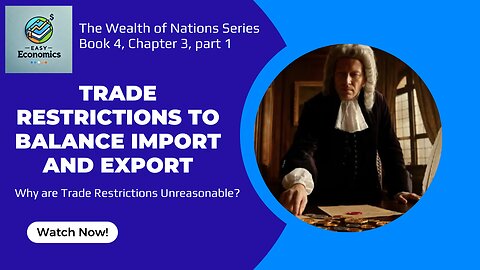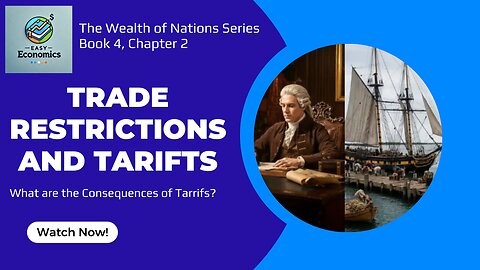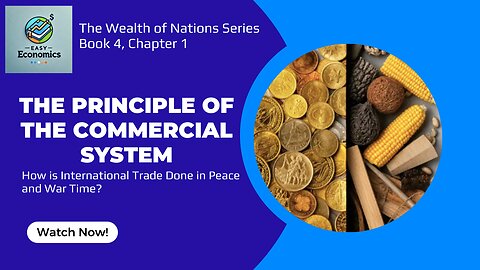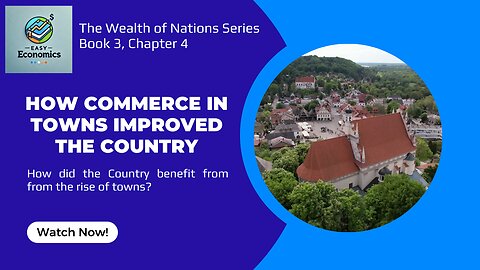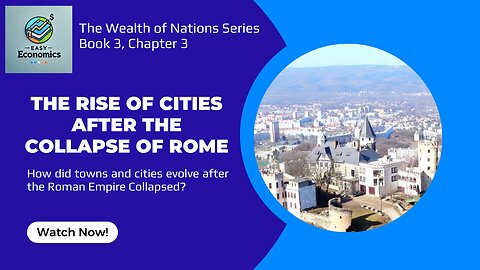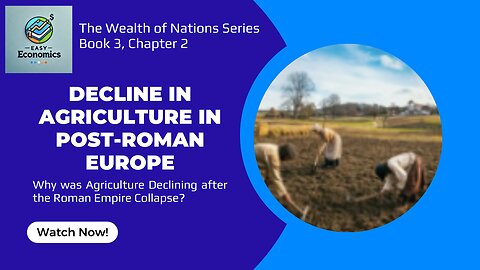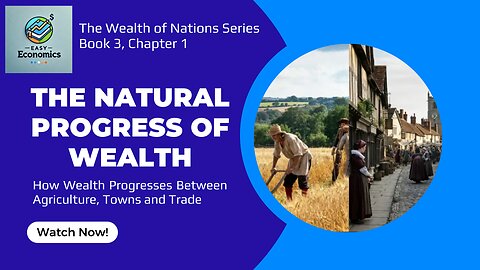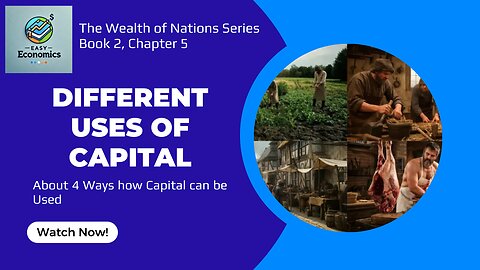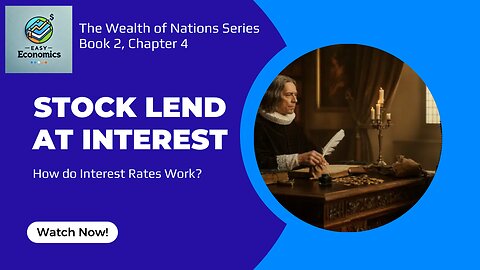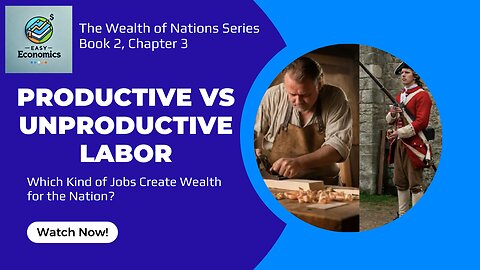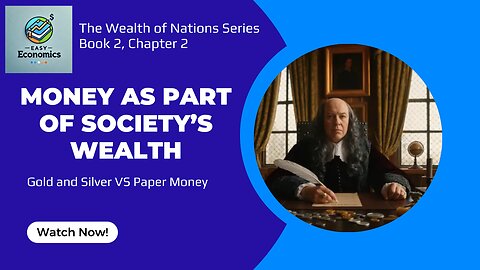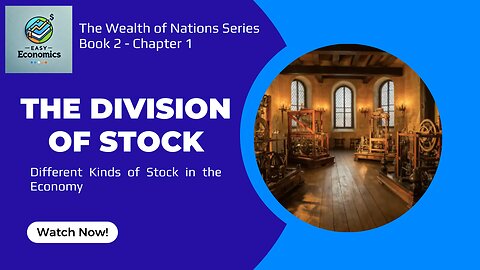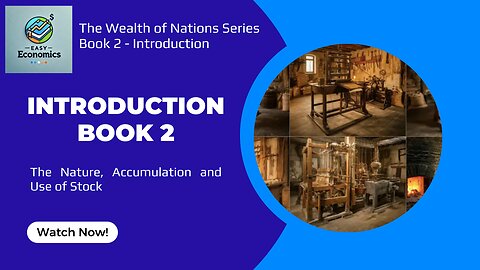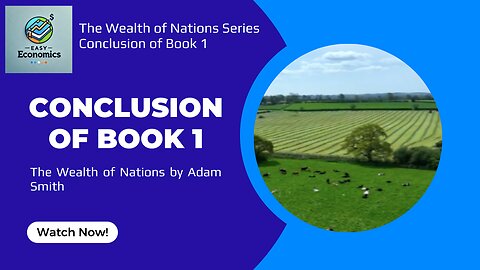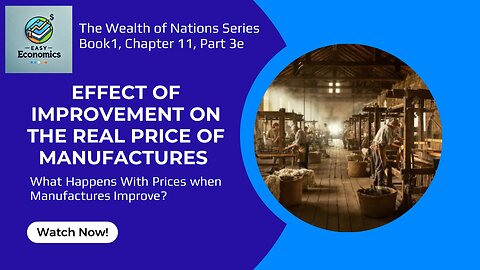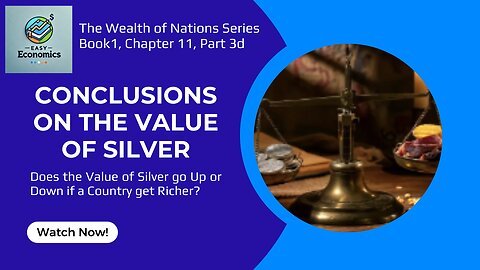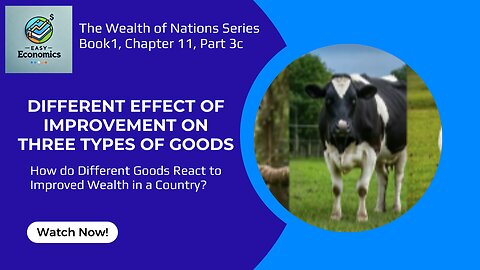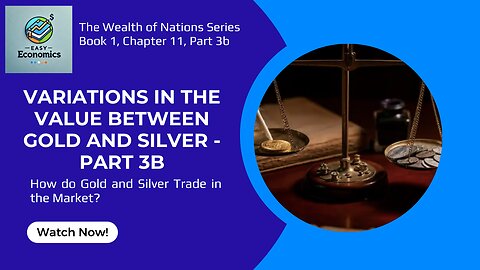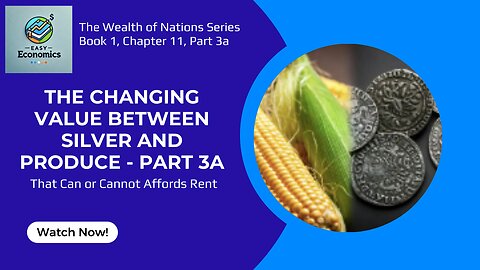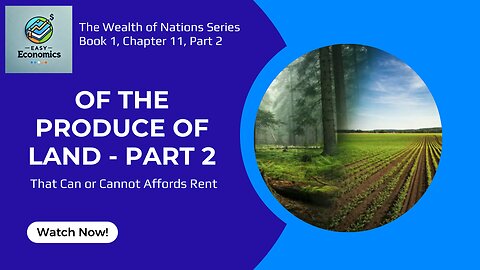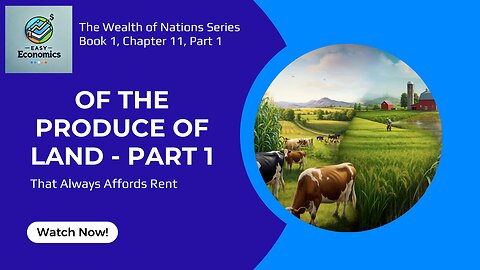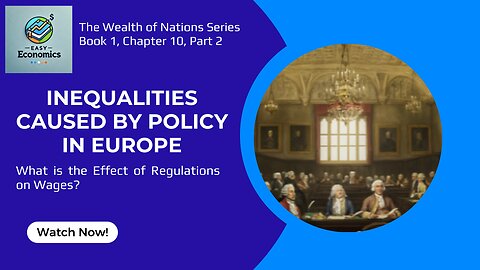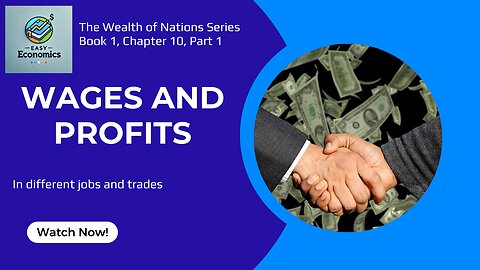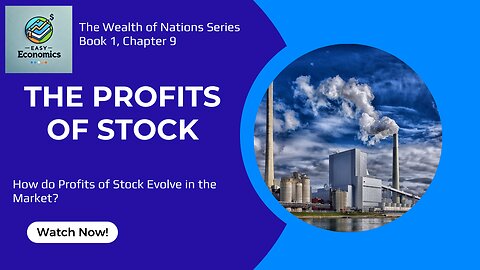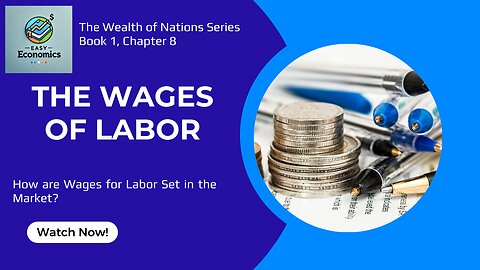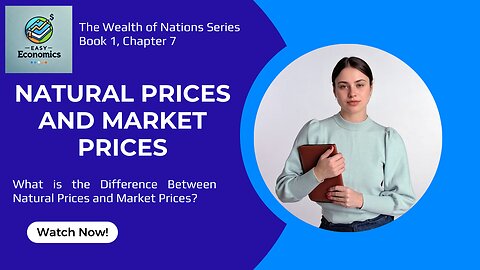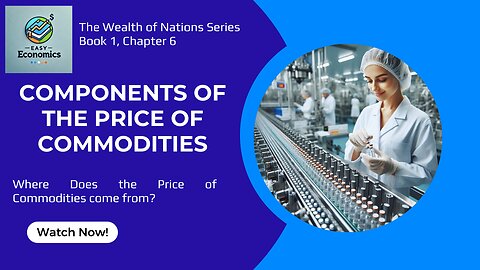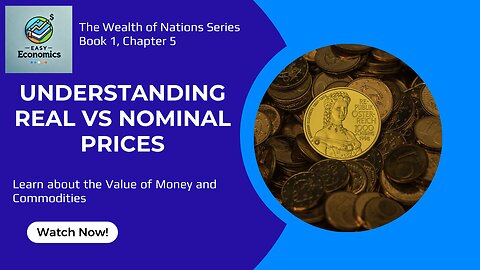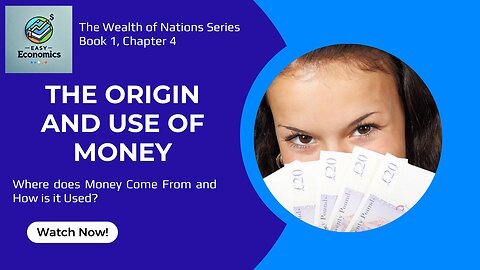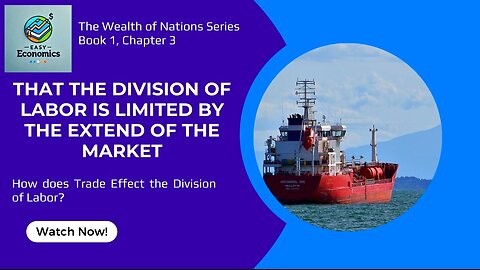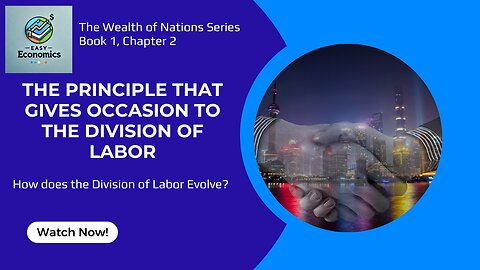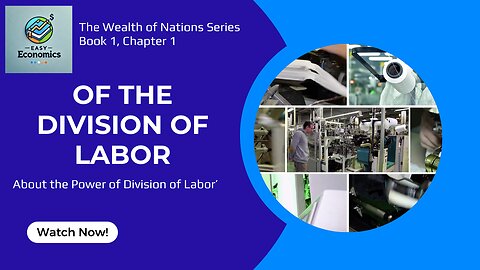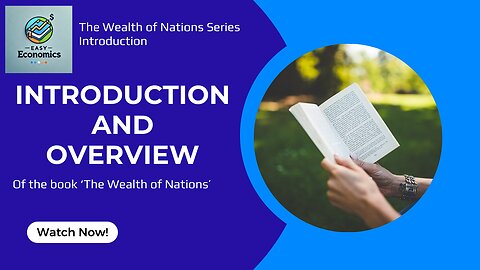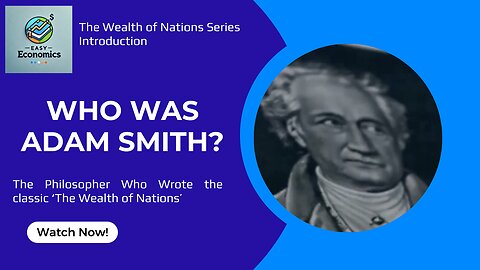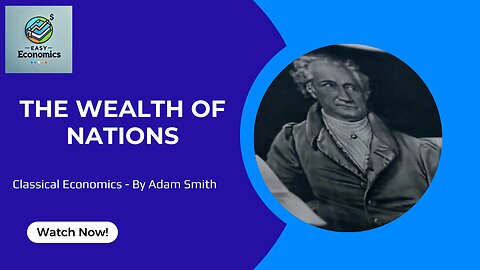Premium Only Content
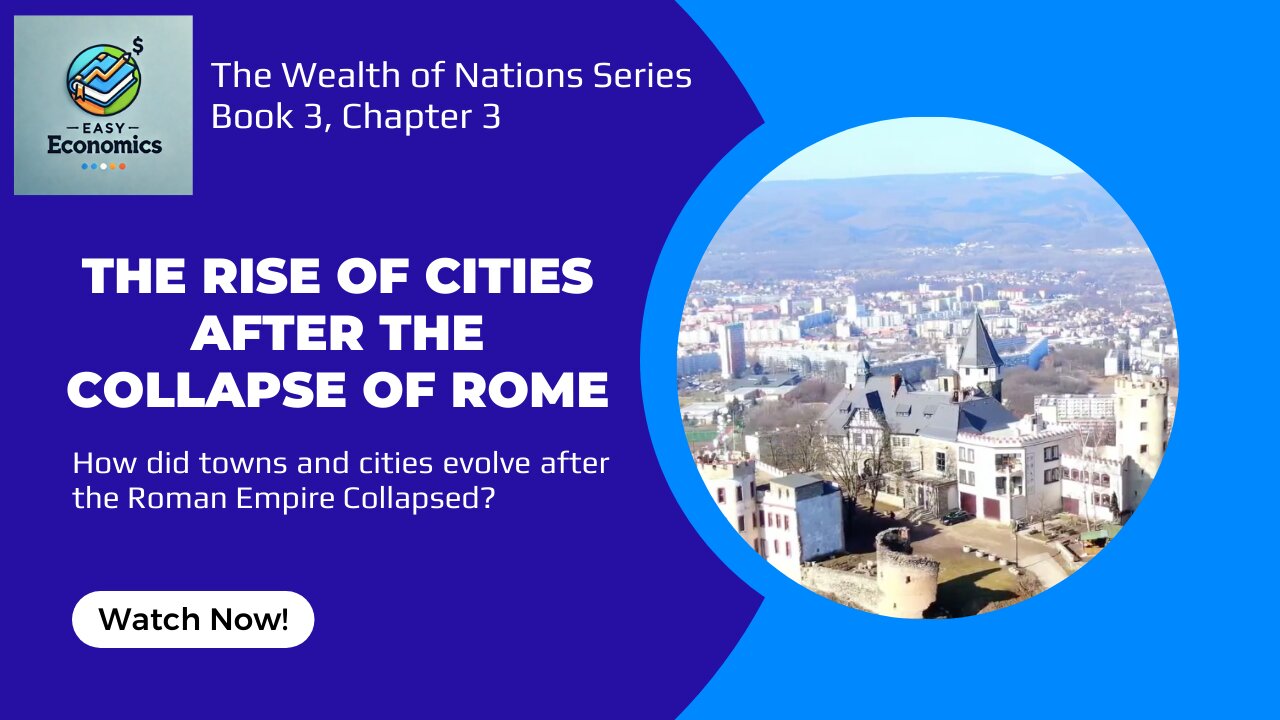
The Wealth of Nations Book 5 Chapter 1 - Public Debt
The Wealth of Nations Book 5 Chapter 2 Part 2 Article 4 - Taxes on Consumable Goods
The Wealth of Nations Book 5 Chapter 2 Part 2 Article 3 - Taxes on Wages
The Wealth of Nations Book Chapter 2 Appendix Article 1 & 2 - Taxes on Property Transfers
The Wealth of Nations Book 5 Chapter 2 Part 2 Article 2 - Taxes on Profits of Stock
The Wealth of Nations Book 5 Chapter 2 Part 2 Article 1 - Taxes on the Rent of Land
The Wealth of Nations Book 5 Chapter 2 Part 1 - Exploring Public Revenue Sources
The Wealth of Nations Book 5 Chapter 1 Part 4 - Who Should Pay for Public Cost?
The Wealth of Nations Book 5 Chapter 1 Part 3 Article 3 - The Cost of Religious Influence
The Wealth of Nations Book 5 Chapter 1 Part 3 Article 2 - The Real Cost of Education
The Wealth of Nations Book 5 Chapter 1 Part 3 Article 1 - The Expense of Public Works
The Wealth of Nations Book 5 Chapter 1 Part 2 - The Cost of Justice
The Wealth of Nations Book 5 Chapter 1 Part 1 - The Cost of National Defence
The Wealth of Nations Book 4 Chapter 9 - Systems in Political Economy
The Wealth of Nations Book 4 Chapter 8 - The Mercantile System's Hidden Flaws
The Wealth of Nations Book 4 Chapter 7 Part 3 - How Europe Benefits from American Colonies
The Wealth of Nations Book 4 Chapter 7 Part 2 - Why New Colonies Prosper
The Wealth of Nations Book 4 Chapter 7 Part 1 - The Motives for Establishing New Colonies
The Wealth of Nations Book 4 Chapter 6 - The Hidden Cost of Trade Treaties
The Wealth of Nations Book 4 Chapter 5 - Bounties, The Hidden Cost of Subsidies
The Wealth of Nations Book 4 Chapter 4 - Understanding Drawbacks in International Trade
The Wealth of Nations Book 4 Chapter 3 Part 2 - Why Extraordinary Restrictions Don't Make Sense
The Wealth of Nations Book 4 Chapter 3 Part 1 - The Unreasonableness of Import Restrictions
The Wealth of Nations Book 4 Chapter 2 - Restrictions on Goods that can be Produced at Home
The Wealth of Nations Book 4 Chapter 1 - The Principle of Commerce and Mercantile Systems
The Wealth of Nations Book 3 Chapter 4 - How Commerce in Towns Improved the Country
The Wealth of Nations Book 3 Chapter 3 - The Rise of Cities After Rome's Fall
The Wealth of Nations Book 3 Chapter 2 - The Decline of Agriculture in Post-Roman Europe
The Wealth of Nations Book 3 Chapter 1 - The Natural Progress of Wealth Explained
The Wealth of Nations Book 2 Chapter 5 - The Different Uses of Capital
The Wealth of Nations Book 2 Chapter 4 - Understanding Stock Lend at Interest
The Wealth of Nations Book 2 Chapter 3 - Understanding Productive and Unproductive Labour
The Wealth of Nations Book 2 Chapter 2 - Money as Part of Society's Wealth
The Wealth of Nations Book 2 Chapter 1 - The Division of Stock
The Wealth of Nations - Introduction Book 2 - Nature Accumulation and Use of Stock
The Wealth of Nations - Conclusion of Book 1
The Wealth of Nations Book 1 Chapter 11 part 3e - Effect of Improvement on the Price of Manufactures
The Wealth of Nations Book1 Chapter 11 Part 3d - Conclusion on the Value of Silver
The Wealth of Nations Book 1 Chapter 11 Part 3c - Different Effects on Improvement of Three Goods
The Wealth of Nations Book 1 Chapter 11 Part 3b - Variations in the Value of Gold and Silver
The Wealth of Nations Book 1 Chapter 11 Part 3a - The Change Between Value of the Produce and Silver
The Wealth of Nations Book 1 Chapter 11 Part 2 - Of The Produce of Land
The Wealth of Nations Book 1 Chapter 11 Part 1 - Of the Rent of Land
The Wealth of Nations Book 1 Chapter 10 Part 2 - Inequality Created by Europe's Policies
The Wealth of Nations Chapter 10 Book 1 Part 1 - Wages and Profits in Different Jobs
The Wealth of Nations Chapter 9 book 1 - Of the Profits of Stock
The Wealth of Nations Chapter 8 Book 1 - The Wages of Labor
The Wealth of Nations Chapter 7 Book 1 - Understanding Natural Prices and Market Prices
The Wealth of Nations Chapter 6 Book 1 - Components of the Price of Commodities
The Wealth of Nations Chapter 5 Book 1 - Understanding Real VS Nominal Prices
The Wealth of Nations Chapter 4 Book 1 - The Origin and the Use of Money
The Wealth of Nations Chapter 3 Book 1 - The Division of Labor, Market Size Matters
The Wealth of Nations Chapter 2 Book 1 - The Principle Which Gives Occasion to the Division of Labor
The Wealth of Nations Chapter 1 Book 1 - The Power of Division of Labor
The Wealth of Nations - Introduction and Overview
Adam Smith - The Philosopher Who Changed How We See The World
The Wealth of Nations - A Timeless Guide to Prosperity
The Wealth of Nations Book 3 Chapter 3 - The Rise of Cities After Rome's Fall
Are you interested to read the original book? Get ‘The Wealth of Nations’ by Adam Smith now: https://amzn.to/3W5xeku
In the aftermath of the fall of the Roman Empire, European cities and towns began to rise despite a period of chaos and disarray. Initially, these towns were populated by poor tradesmen and craftsmen, often living in servile conditions. However, over time, these towns gained important rights, such as the ability to marry freely, inherit property, and trade without the interference of local lords. This newfound independence was driven by practical needs: kings and rulers saw towns as key allies in their struggles against barons and feudal lords. As towns grew, they became self-governing entities, with local councils and militias, offering protection and security to their inhabitants. This laid the foundation for the rise of manufacturing and trade, especially in cities like Venice, Genoa, and Pisa, which thrived through commerce during the Crusades. The development of urban centers marked the beginning of Europe’s transition toward a more industrialized society.
00:00 - Introduction to the Rise of Cities after the Collapse of Rome
00:13 - Post-Roman Empire Cities and Towns
00:45 - Rights and Privileges of Towns
01:05 - Taxes and Exemptions
01:58 - Organization and Self-Governance
02:23 - Practical Reasons for Privileges
03:03 - Independent Republics
03:24 - Influence on Kings and Parliaments
03:51 - Economic Growth and Security
04:32 - Trade and Wealth Accumulation
05:03 - Italian Cities and the Crusades
05:29 - Local Manufacturing and Trade
06:18 - Development of Manufacturing
07:10 - Conclusion
-
 LIVE
LIVE
FusedAegisTV
20 hours agoOFFICIAL Evo 2025 Day 1 Co-Stream - Las Vegas, NV ∥ 17 TOURNAMENTS!!
103 watching -
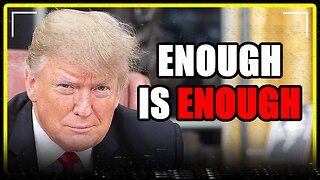 8:07
8:07
MattMorseTV
1 day ago $8.99 earnedTrump just LOWERED PRICES by 75 PERCENT.
46.1K92 -
 51:41
51:41
BonginoReport
9 hours agoParalyzed Woman Blames COVID-19 Jab, Sues Moderna! - Nightly Scroll w/ Hayley Caronia (Ep.103)
96.1K60 -
 LIVE
LIVE
Midnight In The Mountains
3 hours agoGaming w/ PER·SE·VER·ANCE | Friday Night Fortnite | Rumbles Power Couple the Midnights!
52 watching -
 LIVE
LIVE
Illyes Jr Gaming
1 hour ago8/1/25 LFG No Stopping Now!
52 watching -
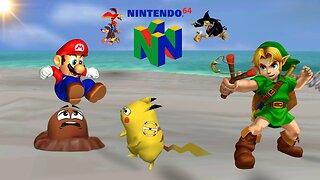 LIVE
LIVE
BSparksGaming
3 hours agoN64 Games on Switch 2! Let's Play Some Classics!
25 watching -
 7:45:32
7:45:32
Dr Disrespect
9 hours ago🔴LIVE - DR DISRESPECT - STREAMING UNTIL I GET A 25 KILL GAME
212K9 -
 1:45:36
1:45:36
Robert Gouveia
3 hours agoNew Jail Video 'Discrepancies' DISCOVERED! FBI Burn Bag! Biden Appointee FIRED!
27.6K4 -
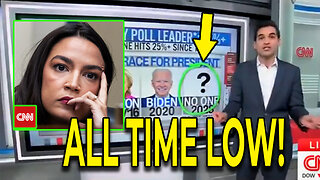 15:18
15:18
T-SPLY
5 hours agoCNN DROPPED a NUKE On Democrats - Worst Polls Ever!
10.2K13 -
 7:21
7:21
SKAP ATTACK
8 hours ago $0.35 earnedNBA Execs Think the Bubble Championship is a Joke
10.2K2
